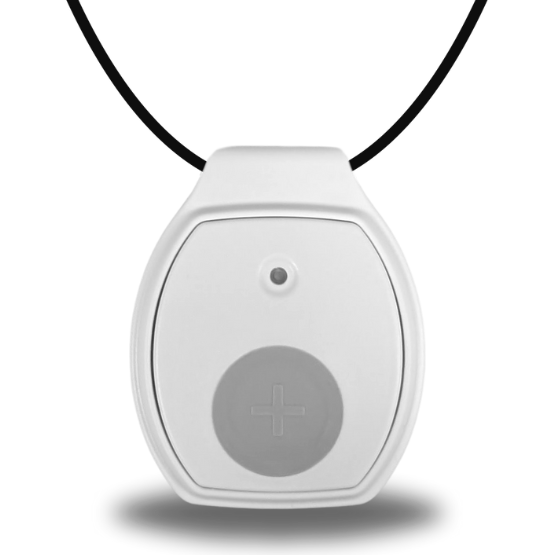Best Vitamins for Seniors to Support Heart Health
It is said that maintaining health for our hearts is very important, as the sensitivity of one's heart increases with age. Basically, the heart is a very strong muscle, but it needs proper nutrition in order to work fine.
Vitamins are highly essential in helping to support good heart health and, through this, reduce the risk of developing any heart disease or blood pressure and other related complications.
This article puts forth the best vitamins for seniors to take for their overall heart health through the analysis of benefits, sources, and daily recommendation consumption.
Life Assure Product Quiz
Find The Perfect Medical Alert Device
Take our 30 second quiz and discover which Life Assure medical alert device is the right fit for you or a loved one.
Life Assure Product Quiz
Find The Perfect Medical Alert Device
Take our 30 second quiz and discover which Life Assure medical alert device is the right fit for you or a loved one.
The Importance of Heart Health in Seniors
It has been reported that heart diseases kill more people in the Canada than any other cause among older adults. Apart from age-related variables, eating more and moving less can raise the risk of heart disease.
If you really want to live long, be sure that you are healthy heart-wise. An elderly person’s heart can be supported by heart-healthy diets and these vitamins must be supplied by the diet.
Essential and Best Vitamins for Seniors Heart Health
Here are some of the most essential and best vitamins for seniors heart health:
1. Vitamin D: The Sunshine Vitamin
A deficiency in vitamin D has been directly related to many risks concerning heart diseases, high blood pressure, and other problems associated with the heart and blood vessels.
Vitamin D insufficiency is seen more often in older adults, especially the ones who are exposed very little to sunlight. This raises their risk. It therefore becomes apparent that the right maintenance of vitamin D is important in upholding the health of the heart in the elderly.
They can do this through exposure to the sun, intake of foods containing high levels of vitamin D, and intake of supplements.
Benefits:
- ● Reduces the risk of heart disease.
- ● Helps regulate blood pressure.
- ● Supports overall cardiovascular function.
- ● Supports overall cardiovascular function.
Sources:
- ● Sunlight exposure
- ● Fatty fish like salmon and mackerel
- ● Fortified foods such as milk and cereals
- ● Vitamin D supplements
Recommended Intake: Daily sufficient consumption for adults should be 600-800 IU depending on the age and overall health. Consult your doctor first before determining the right amount of medicine for you.
2. Vitamin B6 and B12: Powerhouse Duo
These heart-health-promoting vitamins achieve this by reducing the levels of homocysteine. Thus, these vitamins clearly reduce this particular risk and improve overall cardiovascular health.
The body, however, with age loses the ability to absorb B6 and B12, thus making it even harder for older people to get the levels they need exclusively from diet.
So this supplementation is the most important thing for the body to get into such levels of energy in order to lower the chances of developing heart problems and also increase overall well-being in elderly people.
Benefits:
- ● Reduces homocysteine levels, lowering the risk of heart disease.
- ● Supports red blood cell formation, ensuring adequate oxygen supply to the heart.
- ● Enhances energy levels and overall cardiovascular function.
Sources:
- ● B6: Poultry, fish, potatoes, bananas
- ● B12: Meat, eggs, dairy products, fortified cereals
- ● B-complex supplements
Recommended Intake: The suggested everyday consumption for older adults is set at 1.5 mg of Vitamin B6 and 2.4 mcg of Vitamin B12. Increasing daily doses can be recommended sometimes to patients with a physician and those who have eating habits restrictions.
3. Vitamin C: The Heart's Antioxidant
Vitamin C is a very strong protector of the heart from two of the most important risk factors leading to a disease of the heart. It reduces oxidative stress and inflammation. Vitamin C then proceeds to act on the synthesis of collagen required to maintain blood vessels strong and intact.
Thus, vitamin C intake is associated not only with a reduced risk of heart disease but also with good cardiovascular health. It may further contribute to cardiovascular health in that it protects the heart and provides support action on blood vessels, thereby qualifying as an important nutrient for older age groups.
Benefits:
- ● Protects against oxidative damage to the heart.
- ● Reduces inflammation, a key factor in heart disease.
- ● Supports healthy blood vessels and circulation.
Sources:
- ● Citrus fruits (oranges, grapefruits)
- ● Berries, kiwi, bell peppers, broccoli
- ● Vitamin C supplements
Recommended Intake: 75-90 mg is the daily intake recommendation for senior people. This is due to the fact that the body does not store Vitamin C; hence, it is necessary to consume it daily through food or supplements.
4. Vitamin E: Protecting the Heart's Tissues
Vitamin E is an antioxidant. It is purported to be a very important protector of the heart's tissues against the free radicals damage.
Its major function is to block low-density lipoprotein cholesterol from getting oxidized, which is widely thought to be the basic cause of atherosclerosis, which in turn causes heart attacks and strokes.
Benefits:
- ● Prevents LDL cholesterol oxidation, reducing atherosclerosis risk.
- ● Protects heart tissues from oxidative stress.
- ● Supports overall cardiovascular function.
Sources:
- ● Nuts and seeds (almonds, sunflower seeds)
- ● Green leafy vegetables (spinach, kale)
- ● Vegetable oils (sunflower, safflower)
- ● Vitamin E supplements
Recommended Intake: Through oral doses, Vitamin E intake is advisable at 15 mg per day. Before one starts on a supplement, they have to see a healthcare provider to avoid side effects from overdose.
How to Incorporate These Vitamins Into Your Diet?
A diet that avails all the necessary vitamins for heart health in an aging person must have an adequate intake of fruits, vegetables, lean proteins, and whole grains. Such foods are key stores of nutrients essential for heart function, including Vitamins D, B6, B12, C, and E.
While absorption cannot be compared in the young, as much is absorbed, over the years, this capacity and the nutritive value reduce with age, especially when one's diet is highly restricted against such foods.
For this reason, supplements present an important avenue in making sure that senior citizens get to meet their daily nutritional needs.
It is always advisable to consult with a health professional before taking on any new supplement regime, just to be sure that the chosen supplements are safe and will work effectively on individual health conditions and needs.
Proper dieting with essential nutrients combined with proper supplements shall restore greater heart health and better well-being in old age.
Conclusion
Heart health in older people is very important, and adequate intake of vitamins will play a big role in maintaining proper cardiovascular functioning. These are the best vitamins for seniors that will give them a better quality of life and, simultaneously, a healthy heart.











 Get Help With The Push Of A Button
Get Help With The Push Of A Button















